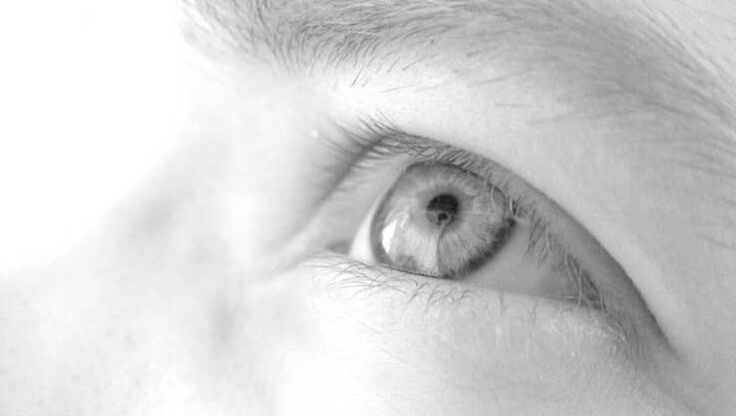Psychotherapy FAQs
|
Below is a list of frequently asked questions and answers which Angela hopes answers any question you might have. If, however, you would like to ask a question or book an appointment, please call Angela on 07736 480 376 or message her.
▌ What is psychotherapy? Psychotherapy is the process of therapeutic exploration of unconscious issues and negative feelings experienced by an individual with a therapist trained in psychotherapy. It’s the process of exploring psychological disorders or maladjustments and helping one look objectively at behaviours, thoughts, feelings and problematic situations. ▌ Why use psychotherapy? Psychotherapy is very useful in ascertaining underlying emotional issues surrounding behaviours. It can be a very useful way of working so that the client understands their motivations and behaviours, leading to deeper self-awareness and autonomy in our lives. |
|
▌ What is hypnotherapy?
Hypnotherapy is the process of using hypnosis within a therapeutic framework. Hypnosis is the process of creating an altered state of awareness which increases unconscious awareness. The unconscious mind is the part of you which stores your memories, is responsible for all behaviours, your emotions and runs the body. It is the highly intelligent and the creative part of you, where all your inner resources are accessed. ▌ Why use hypnotherapy? Hypnotherapy uses our unconscious resources in order to create changes in behaviour and attitudes for us. Hypnotherapy is now a popular, recognised and long-lasting behaviour change tool of today. It is a naturally occurring and gentle way of working, leaving the client feeling relaxed and positive. ▌ Can anyone be hypnotised? Everyone has the capacity to be hypnotised. As all hypnosis is self-hypnosis (that is, you hypnotise yourself) you can only experience hypnosis if you wish to and allow yourself to. It is not advisable to use hypnosis with anyone under the influence of drugs or alcohol, or mentally handicapped, epilepsy or those who suffer from a severe mental illness. ▌ What is the difference between hypnosis and hypnotherapy? Hypnosis is the "state" a person is in whereas hypnotherapy is the use of hypnosis within a therapeutic setting. ▌ What does hypnosis or "trance" feel like? As hypnosis is an altered state of awareness, each person may experience the hypnotic state in a different way. With therapeutic hypnosis the closest experience to that state has been likened to the stage between being awake and being asleep, where the conscious mind begins to wonder, in a relaxed and pleasant way. ▌ Will I remain in control? Yes. You are always in control. Anything that Angela suggests whilst using hypnosis is only taken onboard by you if you're in full agreement with that suggestion. ▌ Will I be aware of what's going on during hypnosis? Most people are aware of what's happening during hypnosis, although you may not consciously remember every word or all the detail, which is common. ▌ Will I get "stuck" in hypnosis? No. Trance, or the hypnotic state, happens all day long - when you are driving, watching TV, reading a book - they are all forms of the hypnotic state, to varying depths. Quite naturally you go in and out of trance all day long. It is impossible to get "stuck" in hypnosis. ▌ I'm not totally relaxed at the thought of using hypnosis, is this normal? It is only natural to feel this way when you've not yet experienced hypnotherapy. However, please be assured that Angela's way of working will ensure a relaxed and comfortable environment for you to feel at ease with. ▌ Is hypnotherapy anything like stage hypnosis? No. Stage hypnosis is used for entertainment and clinical hypnosis or hypnotherapy is used purely for the benefit of healing psychological and physiological problems or to achieve a more positive frame of mind. ▌ Will I speak in hypnosis? Where appropriate, Angela may use analytical hypnosis and if so you may be encouraged to speak. You can, however, speak whenever you wish to. ▌ Will I say anything that I might not want to share with Angela in hypnosis? No. Anything you say will be said with your full conscious and unconscious permission. If you wish for something to remain private, then that will be the case. ▌ Will Angela teach me self-hypnosis? If it is appropriate then Angela will train you in self-hypnosis, which can be very beneficial in many areas, such as building your self-confidence, stress management, anxiety issues, fears, pain relief and weight control, to name a few. If you have a specific request for instruction in self-hypnosis, please ask as Angela will be happy to train you. ▌ Does the depth of hypnosis vary and does it matter to the outcome? The depth of hypnosis can vary from person to person. However, in Angela's 16 year experience of working in the field of hypnotherapy, it does not affect the outcome. Furthermore, evidence has shown that the client will reach their own level of hypnotic state suitable for them in order to access inner resources to overcome the issues being worked on and reach their goals. ▌ What is EMDR Therapy? EMDR (eye movement desensitisation and reprocessing) involves a series of rapid eye movements, like those of REM sleep, to reprocess disturbing memories, trauma or phobias and resolve and desensitise them emotionally. When we sleep we process our experiences from the day with REM sleep, where the eye movements connect right and left brain hemispheres. This brain activity encourages resolution and understanding of situations within the unconscious mind. However, sometimes when we experience trauma it does not get resolved and the trauma continues to impact us. EMDR, used whilst the client is fully conscious and alert, naturally and effectively processes the memories, triggering desensitisation and resolution within the emotional self. ▌ Why use EMDR Therapy? Eye-movement desensitisation and reprocessing (EMDR Therapy) has been shown to alleviate the negative emotions around trauma or negative memories with such speed that it is now recognised as the number one treatment for the condition of post traumatic stress disorder (PTSD) as well as being highly effective in many other areas of treatment. |
▌ What is NLP?
Neuro linguistic programming is the study of behaviours and communications in order to elicit strategies for behavioural modelling, to achieve change and success. It’s the study of how we think, how we organise our mind, our memories, how we perceive the world internally and how we make decisions about what we believe and disbelieve. As a study of communication we can learn how we communicate with ourselves internally and with others and how we choose to interpret that communication and respond to it. NLP is a methodology producing insights and skills with which we can actively use the mind to create the life and successes we desire. ▌ Why use NLP? Neuro linguistic programming is the study of the mind and enables us to recognise inappropriate strategies in our behaviours and model new, more productive strategies to help us change behaviours, beliefs, emotions, motivation, habits and achieve our outcomes. NLP is useful in enhancing our relationships - not just with others but with ourselves. ▌ I thought only people with severe nervous conditions and psychological problems used psychotherapy. Is it available for everyday problems too? Yes, psychotherapy is a process of analytical discussion and investigation by a trained professional and can be most helpful for insights into everyday problems such as relationship issues, depression, weight control, habits, phobias and panic attacks, to name a few. ▌ Angela is qualified in many psychotherapies. Do I have to decide which therapy will suit me best? No, that's Angela's job and she will probably use a combination of different psychotherapies in order to effectively help you achieve your outcome. ▌ Can I bring someone along with me to the session? Yes, you can if you wish. However, once you are fully relaxed in Angela's presence, it will probably be more beneficial to you to visit on your own in order to feel able to speak openly if you wish to. ▌ Are any drugs used? None whatsoever. ▌ How do I know if a therapist is qualified? All therapists, whether hypnotherapists or psychotherapists, should display their qualifications in the clinic room or on their website. Furthermore, you should ask to see them if they do not. It is prudent to ask which professional bodies a therapist belongs to and then check with those professional bodies for authenticity. It is also wise to check how long they've been in clinical practice and what their area of expertise is, if any. Angela is registered with the BACP, British Association for Counselling and Psychotherapy. ▌ Will I be provided with a recording of the session? Sometimes it is appropriate to record the hypnosis part of the session in order for the client to use the tape in their own time. Angela also has a range of downloads available for general or specific use. Please enquire about purchase. ▌ I'd like my child to see Angela. Can I be present during the session? Angela only sees children from the age of 13. If your child is under the age of 16, Angela requests that you accompany your child in the initial session. However, if the child and the parent feel totally comfortable with Angela after the first session, then she is happy to see the child privately. As a parent you have full responsibility for your child and Angela respects that. ▌ What happens during a session? The first part of the session will be spent discussing the reason you are there, what the problem is and what your goal or outcome is as well as taking a personal history. Angela will then use a variety of therapies in order to help you resolve any underlying issue and create the desired change. The setting is one of relaxation, empathy and professionalism. It can also be fun, which may surprise many clients. ▌ How long does a session last? The stop smoking session is 2 hours in duration. All other sessions are 75 minutes for an initial session and following sessions are one hour in length. Supervision sessions for Psychotherapists and Counsellors are either 2 hours or one hour, as required by their governing body. ▌ How many sessions will be necessary? This question is not easy to answer due to the individuality of each client and the issue they may be working on. Angela is both a short-term, goal-focused therapist as well as a long term therapist. Angela's priority is to address any underlying issue in order to ensure that the positive changes the client experiences are long-lasting ones. In all cases it is almost certain that clients will experience some positive change or relief after the first couple of sessions. Angela will discuss with you how many sessions you will set aside in order to reach the goal you set for therapy during your initial or second session. ▌ What guarantees do I have? Angela prides herself in her professionalism. Her ethics and integrity means her focus is on the client's welfare and outcome. She is registered with the British Association for Counselling and Psychotherapy, as well as having full indemnity insurance. If, in the unlikely event you aren't fully happy with your treatment or session, Angela will be only too happy to discuss this with you and resolve the matter. There are no guarantees that you will make the changes that you wish for, although it is unlikely that you won't. Angela can guarantee that she will provide you with a professional service with integrity at its heart. ▌ What are Angela's fees? This depends on the session as the stop smoking session is different from, say, working with phobias. Please call or message her for a list of current fees. ▌ I've had a look at the list of conditions treated but don't see my issue on there, what should I do? Angela treats a wide range of conditions and helps clients achieve many outcomes. If you cannot see what you're looking for on this site, please contact Angela on 07736 480 376 or email now. |



